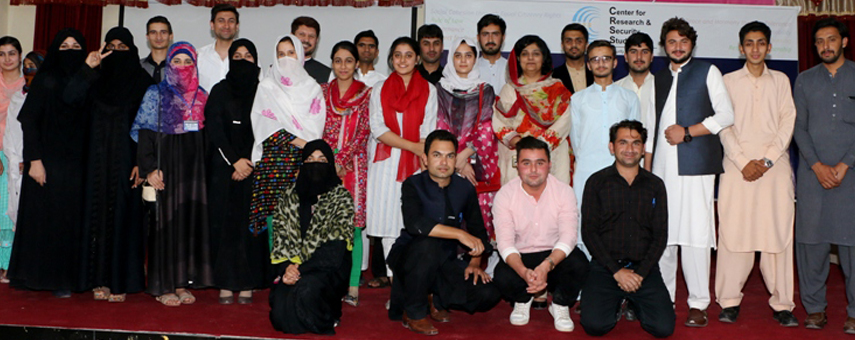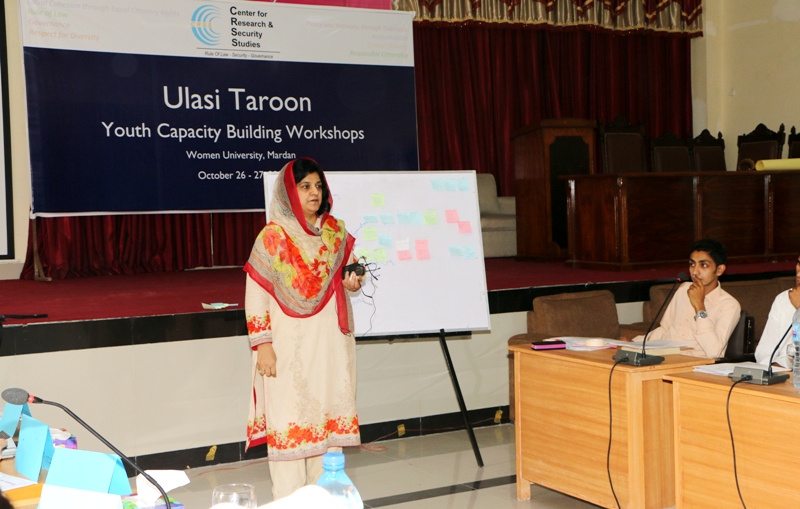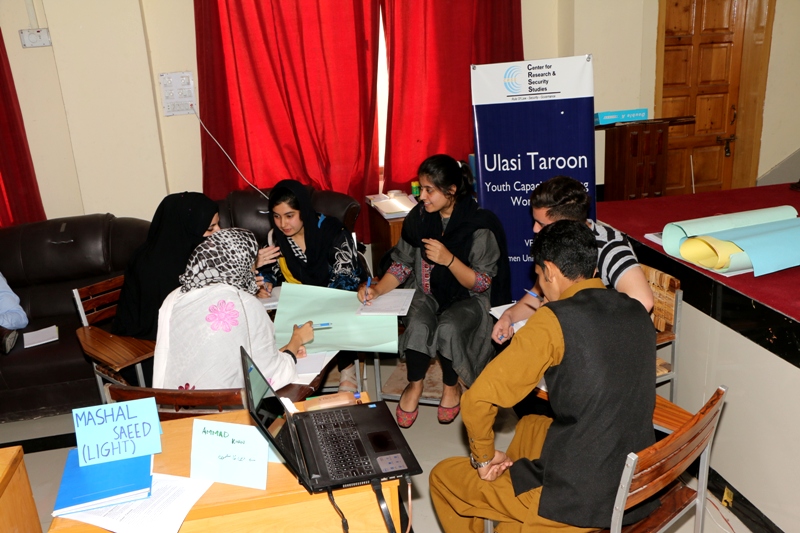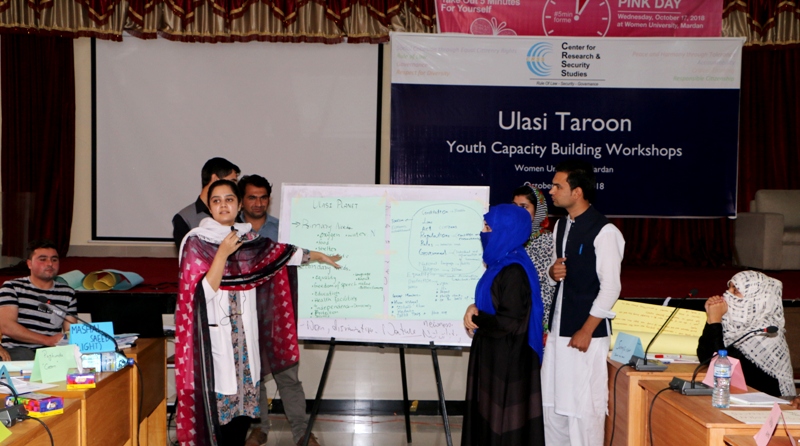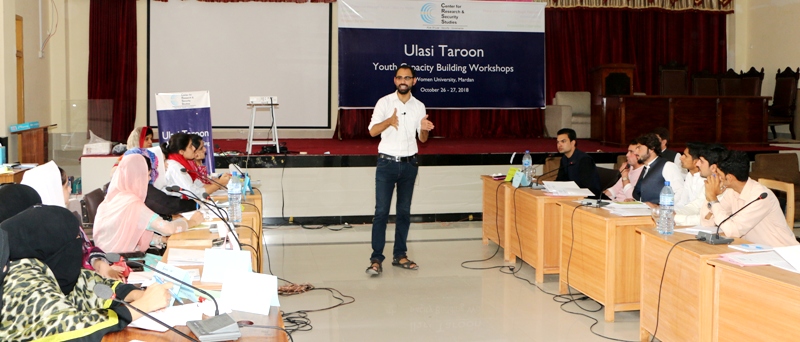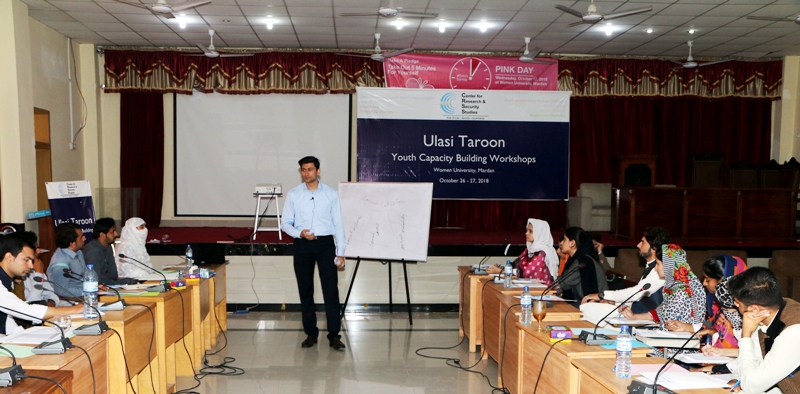Law is not equivalent to the gun, nor is the role of law enforcement agencies just with the gun. It’s a set of rules and regulatory framework to regulate the human behaviors and interactions. For such regulation, the society develops cultures, traditions and ethics whereas the state develops laws to control the human conduct. The practical application of laws faces several critical challenges in the present times. The concept of rule of law is applicable across the board and not just for and on a specific group in the society. The policy makers – while devising laws and legislations – must not ignore the culture, its evolution and the sensitivities attached to it as the culture is always stronger than a law. This factor should be considered and analyzed during the policy making process given that you can fight crimes but you cannot fight the culture. The concept of rule of law has three important tiers that it originates from including constitution, laws and rules. It calls for abiding by these three and make sure that there is rule of law and not some powerful individual. It also calls for the indiscriminate application of laws and impartiality of those implementing laws. It is transparent and certain that everyone is subject to accountability and accountable to law no matter how powerful. It should be transparently applied – across the board – with certainty to uphold publics’ belief in law. Rule of law requires certainty of punishment; not the intensity of it.
These were the notions expressed by Syed Khalid Hamdani, District Police Officer (DPO), Swabi during the tenth round of Ulasi Taroon, Youth Capacity Building Workshops organized by the Center for Research and Security Studies (CRSS) at the Women University, Mardan from October 26-27, 2018. Barrister Ali Gohar; Shagufta Khalique, an educationist; and CRSS team leader Malik Mustafa also spoke during the workshop.
While sharing with the participating students the practical perspective and his experiences on rule of law, the DPO Swabi said that there is a disconnect between the concept and practice of rule of law in Pakistan, and lesser the gaps, more the development. The only way to uphold rule of law in the country is ensure its transparent and indiscriminate practice. The guiding principles at the core of this concept is humanity; preventing the discrimination and alienation of minorities. It also aims to encourage the majorities to make efforts for and ensure the social inclusion of the disenfranchised groups.
Liberalism means acceptance of different views and exhibiting tolerance to ensure peaceful coexistence of diverse communities. The concepts of the future leaders should be as broad, democratic, tolerant, liberal, pluralistic and universal as possible. They should be anchored in the core democratic values so that they resonate with the tenets of rule of law. Those against these fundamental ideals are actually against rule of law and want to assert their powers.
The youth – as future leaders – must channelize their interest in studying and analyzing the different cultures wherever they go. Then in the leadership roles in the future, they should try to improve it; studying culture and intervening accordingly. We should question the counterproductive social and cultural norms. The youth can promote rule of law by adherence to law and abiding by the core constitutional values and being a law abiding citizens. Such good practices inspire other members of the society and affect them just like a virus.
The most critical part of the transparent implementation of rule of law is the capacity building of those implementing laws. To harness the maximum potential of the initiatives like CPEC, and utilize these opportunities for the bright and more connected future of our country, we need to be more acceptable and tolerant of diversity. The most vulnerable groups in the society are the biggest victims of violence; which requires facilitating and improving accessibility to the redressal mechanisms.
Barrister Ali Gohar said that one of the most important components of democracy is freedom of expression. While it ensures these basic freedoms and the provision of other fundamental rights to the citizens as equal humans, it also requires to know our redlines while exercising our freedom of expression. Democracy means inclusion of the people of all the communities of all faiths. The basic essence of the democracy is representation of people from all walks of life. Tolerance is among the fundamental democratic ideals critical to social cohesion. Nations cannot progress and stay cohesive without the existence and acceptance of tolerance perspectives. The fundamental prerequisite of democracy is humanity and treating each other as humans and equal citizens. In democratic states, all the citizens are entitled to equal chance of social mobility. The coexistence of the different communities and inter and intra faith and sect harmony is only possible through compliance with the core constitutional values critical to social cohesion. The decisions taken in democracy cannot be taken in isolation and ought to consider the collective interest of the communities and be inclusive of the feedback of the public on the issues that concern them the most.
Mrs. Shagufta Khalique, an educationist, noted that the youth has a tremendous capacity and potential to understand and promote the core constitutional values of equality, tolerance and acceptance. But unfortunately, these values are not part of their formal education curricula to take the young leaders on board and build their capacity for the leadership roles by orienting and introducing them to these diverse ideas.
Human rights are the universal mandatory entitlements of every human being and cannot be given as a reward or suspended as a punishment. While explaining the interdependence and connection between human rights and conflict, she emphasized that the conflicts no matter how big or small are a result of the human rights violations and an attitude of denial towards diversity and equality. She said that conflicts have their negative impacts on the socio economic and political set up of the society. They are also reflected in the attitudes and behaviors of the individuals and resulting in damaging the social fabric. Youth can play a crucial role in social cohesion – deepening their understanding of the ingredients of a cohesive society, making them part of their vision and practicing them in their daily life.
Mr. Malik Mustafa, Manager Programs, CRSS said that the society devoid of disparity, distinction, discrimination or any other divisive factors which engender divisions, distrust and conflict is known as a cohesive society. Social cohesion helps people to work together for the attainment of shared goals, designed and agreed upon to improve the living conditions for all. It ensures greater inclusiveness, more civic participation and creating opportunities for upward mobility. It is the glue that holds society together.
Social cohesion is built around three key values of social inclusion, social capital and social mobility. Social inclusion refers to the degree to which all citizens can participate on equal footing in the economic, social and political life, including whether people are protected in times of need. Social capital refers to trust between people and in institutions and the sense of belonging to a society. Social mobility refers to equality of opportunity to get ahead. Social cohesion can be nourished with respect, acceptance, tolerance, abiding by rule of law with a liberal democratic and inclusive mind.
Ulasi Taroon is a counter radicalization initiative of CRSS that aims to address the radicalization challenges, extremist ideologies and foster social cohesion through a discourse anchored in the core constitutional values which are fundamentally essential prerequisites for social peace and harmony. The endeavor aims to cultivate and sensitize the youth – in the universities across KP – in the core values in the Pakistani constitution and our social contract. It’s an attempt to highlight the criticality of abiding by these ideals – such as adherence to rule of law, primacy and sanctity of constitution, equal citizenry, responsible citizenship, respect for fundamental human rights, tolerance for diversity and different opinions, inclusive democracy and good governance – as a measure of fostering social cohesion and peaceful co-existence.

